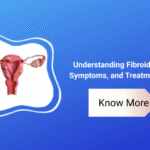Treatment

Discover the vital role of Vitamin D in bone health, immunity, and overall well-being. Learn about
deficiency symptoms, natural sources, supplements, and effective treatment options.
Vitamin D: The Sunshine Nutrient Essential for Health
What is Vitamin D?
Since early childhood we have been hearing about Vitamin D and how essential it is for
our bones. Sun was the direct source for it, hence, we were recommended to play
outdoors.
But what is Vitamin D exactly you may wonder.
Vitamin D is a fat-soluble vitamin crucial for calcium absorption, bone strength, immune system
health. Unlike most vitamins, Vitamin D functions more like a hormone, influencing various
bodily processes, including mood regulation, muscle function, and cardiovascular health. While
sunlight is the primary natural source, dietary intake and supplements play a significant role in
maintaining optimal levels.
Why is Vitamin D Important?
Vitamin D is essential for numerous physiological functions, including:
● Bone Health – It aids calcium absorption, preventing osteoporosis and rickets.
● Immune System Support – Enhances the body’s defense mechanisms.
● Mood and Mental Health – Linked to lower risks of depression and anxiety.
● Muscle Strength – Reduces the likelihood of falls and fractures.
● Heart Health – Helps regulate blood pressure and cardiovascular function.
Types of Vitamin D and How They Work
There are two primary types of Vitamin D:
1 . Vitamin D2 (Ergocalciferol) – Found in plant-based foods and fortified products.
2 . Vitamin D3 (Cholecalciferol) – Naturally produced in the skin through sunlight exposure
and found in animal-based foods.
Vitamin D undergoes a two-step activation process in the liver and kidneys to form calcitriol, the
active hormone essential for calcium metabolism and other biological functions.
Signs and Symptoms of Vitamin D Deficiency
Vitamin D deficiency is alarmingly common, especially among individuals with limited sun
exposure. Symptoms include:
➢ Unexplained Fatigue – Persistent tiredness even with sufficient rest.
➢ Frequent Infections – Weakened immunity leading to frequent colds and flu.
➢ Bone Pain and Muscle Weakness – Linked to conditions like osteoporosis and
osteomalacia.
➢ Hair Loss – A deficiency may contribute to thinning hair.
➢ Depression and Mood Swings – Low Vitamin D levels are associated with increased
depression and anxiety risks.
➢ Delayed Wound Healing – Poor skin regeneration and increased inflammation.
➢ Weight Gain – Studies suggest a potential link between low Vitamin D levels and
obesity.
➢ Sweaty Head – An early sign of deficiency, often observed in newborns.
Who is at Risk of Vitamin D Deficiency?
Certain individuals are more prone to developing Vitamin D deficiency, including:
● People with Darker Skin – Higher melanin reduces UVB absorption.
● Older Adults – Reduced skin synthesis and dietary intake.
● Individuals with Limited Sun Exposure – Those who stay indoors or wear excessive
sunscreen.
● Obese Individuals – Fat storage reduces bioavailability.
● Those with Digestive Disorders – Conditions like Crohn’s, celiac, and IBS interfere
with absorption.
● Breastfed Infants – Breast milk alone does not provide adequate Vitamin D.
How to Increase Vitamin D Levels Naturally
- Sunlight Exposure
Natural sunlight is the most efficient way to boost Vitamin D. Aim for 15–30 minutes of sunlight
exposure on bare skin (face, arms, or legs) at least 3–4 times a week. However, factors such as
location, season, and skin tone affect production. - Vitamin D-Rich Foods
Adding Vitamin D sources to your diet helps maintain sufficient levels. These include:
● Fatty Fish – Salmon, mackerel, and sardines.
● Egg Yolks – A good natural source.
● Dairy & Fortified Foods – Milk, yogurt, and cereals.
● Mushrooms – Certain varieties contain Vitamin D2. - Supplements
If natural sources are insufficient, Vitamin D3 supplements are highly effective. The
recommended daily intake varies by age and health status:
➢ Infants (0–12 months): 400 IU
➢ Children & Adults (1–70 years): 600 IU
➢ Adults over 70: 800 IU
Deficient individuals may require 1,000–4,000 IU daily under medical supervision.
- Strengthens Bones and Prevents Osteoporosis
Vitamin D enhances calcium absorption, reducing fracture risk and preventing bone-related
disorders like osteoporosis and rickets. - Boosts Immunity
It regulates immune function and helps combat autoimmune diseases, respiratory infections,
and chronic inflammation. - Enhances Mental Well-being
Studies suggest a link between Vitamin D deficiency and mood disorders like seasonal affective
disorder (SAD), anxiety, and depression. - Supports Heart Health
Maintaining adequate levels reduces hypertension, heart disease, and stroke risk. - May Lower Cancer Risk
Research indicates Vitamin D may help reduce the risk of colon, breast, and prostate cancer by
promoting healthy cell growth.
FAQs on Vitamin D - How can I check if I have a Vitamin D deficiency?
A 25-hydroxyvitamin D blood test determines Vitamin D levels. Consult a healthcare provider if
you experience symptoms. - Can too much Vitamin D be harmful?
Yes, excessive intake (above 4,000 IU daily) can lead to Vitamin D toxicity, causing nausea,
kidney damage, and hypercalcemia. - Can I get enough Vitamin D from food alone?
While diet contributes, sunlight and supplements are often necessary for maintaining optimal
levels. - Is Vitamin D linked to weight loss?
Some studies suggest it may aid weight management by improving metabolism and reducing fat
accumulation. - Does sunscreen block Vitamin D production?
Sunscreen with SPF 30+ can reduce synthesis by 95%, but brief sun exposure without
sunscreen is usually sufficient. - Can Vitamin D improve sleep quality?
Yes, adequate levels help regulate melatonin production and sleep cycles, reducing insomnia
and sleep disturbances. - Is it safe to take Vitamin D daily?
Yes, daily supplementation is safe within the recommended dosage. Always consult a doctor for
high-dose intake.
Vitamin D is a critical nutrient influencing multiple aspects of health, from bone strength and
immunity to mental well-being and heart health. While sunlight remains the best natural source,
incorporating Vitamin D-rich foods and supplements ensures optimal levels, especially for at-risk
individuals. Regular testing and lifestyle adjustments can prevent deficiency-related
complications, promoting long-term wellness.
Prioritize your health today—get your Vitamin D levels checked and make informed choices for
a healthier tomorrow!

